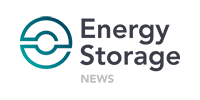 Over the past couple of weeks, various flow battery makers have touted new sales and supply chain agreements as the fledgling sector fights for a share of the stationary energy storage market.
Over the past couple of weeks, various flow battery makers have touted new sales and supply chain agreements as the fledgling sector fights for a share of the stationary energy storage market.
Following the deployment of a 1MWh unit in the south west of England, British ‘flow machine’ maker RedT said that it had received an order for nine devices to an unnamed customer in Southeast Asia.
That order adds up to 0.6MWh of RedT energy storage systems, comprised of four units of 30kW / 150kWh and one 5kW / 20kWh system. The storage will be grid-connected, performing a “range of services” and serving as “flexible platform assets”, the company said.
Vertical integration of supply chain
Also in the past few days, a US energy storage start-up, StorEn, which is developing vanadium flow energy storage systems, announced it had brokered a supply chain deal with an Australian mining company, Multicom Resources.
The agreement is intended to create a “vertically integrated supply chain model” relating to the sale, distribution and manufacturing of StorEn’s Vanadium Flow Batteries (VFBs). StorEn claims an energy density improvement of 25% over rival flow systems. It also says designs for which the company has patents pending could cut costs in half for the “power side” of the battery and also extend system lifetime to 15,000 cycles.
Multicom is developing a vanadium pentoxide mining operation in Queensland. Once this is operational, the agreement allows StorEn to source raw materials at a “low cost” fixed price. In return Multicom has exclusive rights to sales and distribution of the finished systems, via its subsidiary Freedom Energy. The two companies also have the option to acquire equity interest in one another, while StorEn will also supply trial units to Multicom for testing under pilot schemes in the Asia-Pacific region.
Pivoting from a prior interest in fuel cells, StorEn said it is aiming its vanadium systems at markets for telecommunications, industrial and perhaps surprisingly, residential energy storage.
Titanium electrode supply deal for Primus
US manufacturer Primus Power, which makes flow energy storage systems around zinc bromide chemistry and has installed a demonstration unit at the headquarters of Microsoft, has just inked an electrode supply deal.
The company’s supply partner De Nora announced via the North American Clean Energy magazine website that it is “deepening” a relationship with Primus built on five prior years of research and commercialisation.





